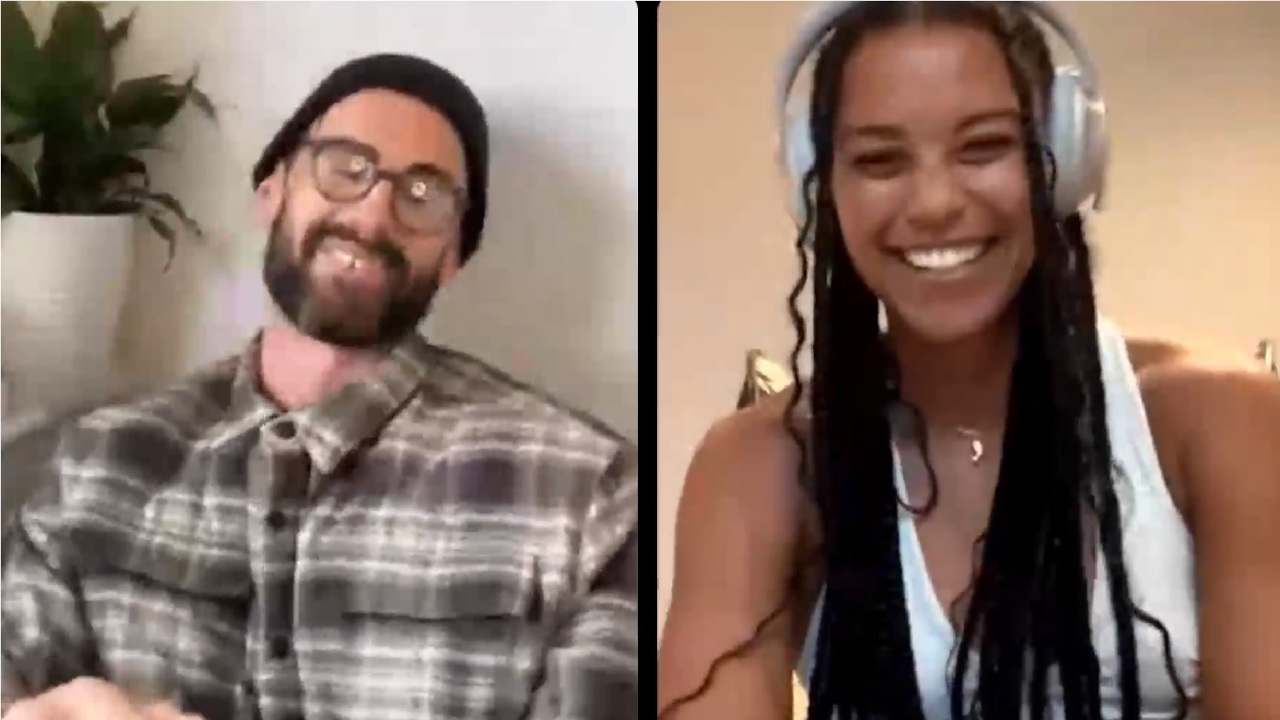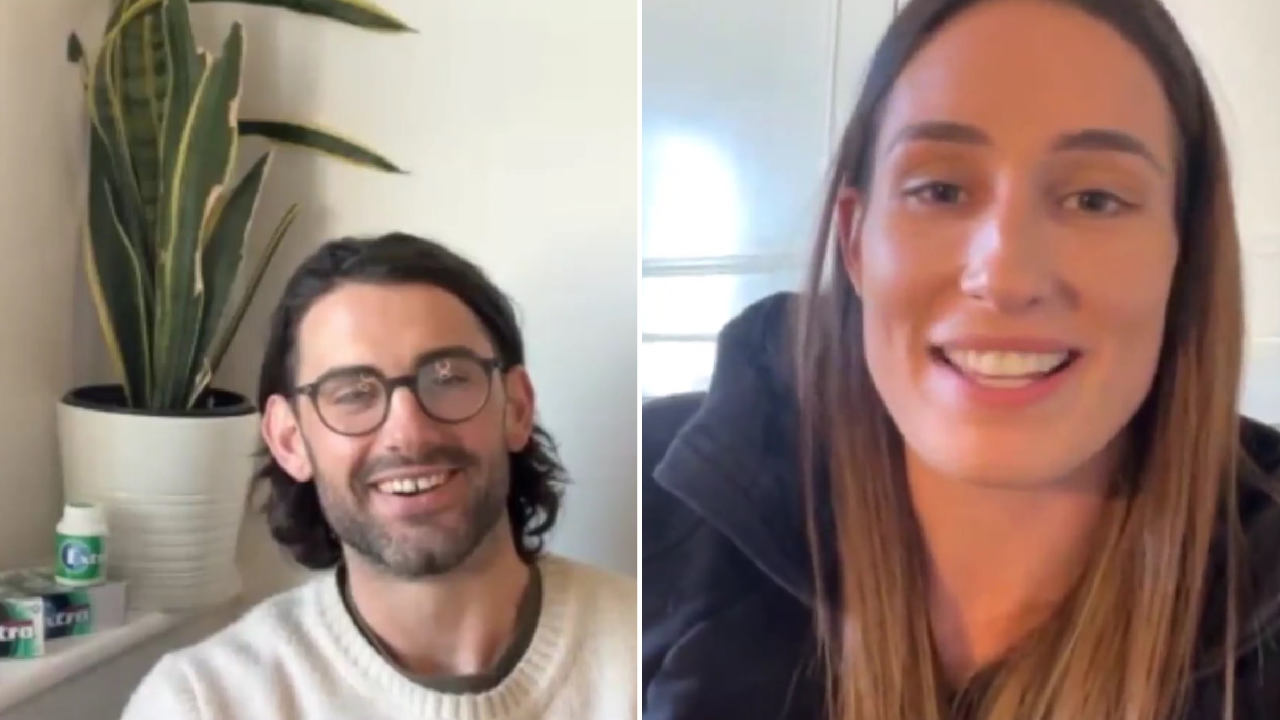Animated and passionate
Entering senior footy as a schoolkid and going through the challenges at Essendon were two of the toughest situations I had to face. A third was leaving the Saints. Being the first year of free agency, it was another unique situation I found myself in.
I can speak pretty freely now – I was at a footy club which I felt didn’t really want me. There was another club or two showing me a lot of love and it became clear I had to make a decision. As much as I loved St Kilda and wanted to stay, I felt backed into a corner and perhaps that’s the way they wanted it.
As you get older you understand the politics in football and, as much as you might hate it, you realise that it’s part of the business, especially for a club. They’ll be the first to cut you off at the knees when it suits them and I think it’s pretty good that guys are taking a bit more initiative and taking control of their own careers.
Free agency has been prevalent in American sports but, since it’s come along here, guys have been taking more control of their careers. Some people would say there’s too much power in the players’ hands now, but the power’s been with the footy clubs for a very long time.

Inside the playing group at St Kilda there was a lot more openness and honesty. Players and coaches would give each other feedback 24/7. It was a key aspect of the strong culture there.
Anyone who took an interest in my career would know that I’ve been animated and sometimes overly passionate. Criticism of me and some of my body language at times was warranted. But, when you’re around the same guys six or seven days a week, you get to understand each other.
The people around me, the guys I played with, knew that about me, that there were times my emotions would get the better of me and it would boil over. I can’t say they never took it personally, but they always knew where it was coming from, that it was coming from a good place. I wanted the best out of myself and the people around me, and wanted the team to do well.
I knew what my teammates thought of me and I was always open to having open lines of communication.
I can speak pretty freely now – I was at a footy club which I felt didn’t really want me. There was another club or two showing me love and it became clear I had to make a decision.
That two-way street wasn’t as evident at Essendon when I got there as it had been at St Kilda. I think it was in my second year at Essendon, there was a middle-leadership group we’d set up with our sports psych at the time, Jonah.
They wanted to start a system of getting those players to give feedback. They asked me to be the first cab off the rank.
The middle-leadership group got me in, sat me down and gave me their thoughts on what they felt I was doing well and not so well. They told me where they believed I could improve.
Jonah told me afterwards that the players were pretty intimidated having me first-up. But the idea was to show them that communication is always a two-way street. Communication builds respect, bonds and friendships.
You don’t have to like every person you work with. But you’re all there for the same reason and you’ll help each other achieve your goals if you’re working together and creating a powerful environment. One of the most important ways of achieving that is by being honest with one another.
After a while we managed to create that dynamic at Essendon and the club is clearly better for it.
That’s what culture is. It’s a behaviour, a way of thinking, a way of doing things. It’s a level of respect and closeness within the group. It became a way of doing things at the Bombers and I’m glad I could play a role in developing that.
Leaving ‘club-land’
It’s no secret that I didn’t want to have my career end when it did. You hear stories from other players about the body and mind slowing down post-30, but I didn’t feel like I was at that spot. Regardless of how I was feeling, I could sense I could be getting close to the end just by the things that were going on around me.
It’s a bit of a balancing act to prepare for life after footy while you’re still playing, but it’s something you really have to do. You want to focus on playing as well as possible while you’re still in ‘footy club-land’, but also be ready for what comes next.
In my situation, finishing up was a shock to the system, as much as I thought I’d prepared for it well. And it will still take some to get my head around.
Thankfully, I’ve been in a position where I could take some time off. I’ve prepared financially for this time and that’s given me the luxury of having the last six months off in which I’ve spent time doing things with my family that I haven’t been able to do previously.
I’ve been taking my kids to daycare most days and picking them up, taking my little one to a little GymbaROO class, taking my oldest to swimming classes on Saturday mornings.
The other reason I’ve taken this time is to have a good think about what career path I want to take. I was drafted at age 17 and pretty much had the blinkers on for 16 years. Now is my opportunity to discover what my identity is beyond playing football.
A few years ago I turned a blind eye to conversations about post-footy life. Now, going through it, I can see how far we’ve come. There’s a lot of support for players, whether you’re a 33-year-old and had a long career like myself, or you spend only two or three years in the system. We’re a lot more educated about coming out of football.
The roles of the AFLPA and, in clubland the personal development coaches, are so much more developed in helping players make the transition. They stay in touch, check in, provide advice and support.
While I think it’s a great thing that support for players transitioning out of the game has improved, I haven’t taken up the offers because I’m lucky to have made a lot of contacts and friendships over my years of playing which are going to help me.

I’ve got some media work locked in already, which I’ve enjoyed. But I know the odds of having longevity in the media are pretty slim, so I’ve been conscious of finding another career path, potentially within golf, which I love, as well as keeping up some business interests I’ve got in place. Over the next month or so, things will become more concrete.
In the meantime, I’m sort of bracing myself for the start of the new season. I’ve spoken to mates like Nick Riewoldt and Leigh Montagna, who warned me about the roller-coaster you can go on when you finish up.
They said it’s all good during the off-season, but once the season gets underway again you start to feel a bit differently. You get this FOMO when the teams go back to training. It’s a reminder that this is reality now, that your career is over.
More about: Essendon | Leadership | Retirement | Sponsored | St Kilda




 Load More
Load More